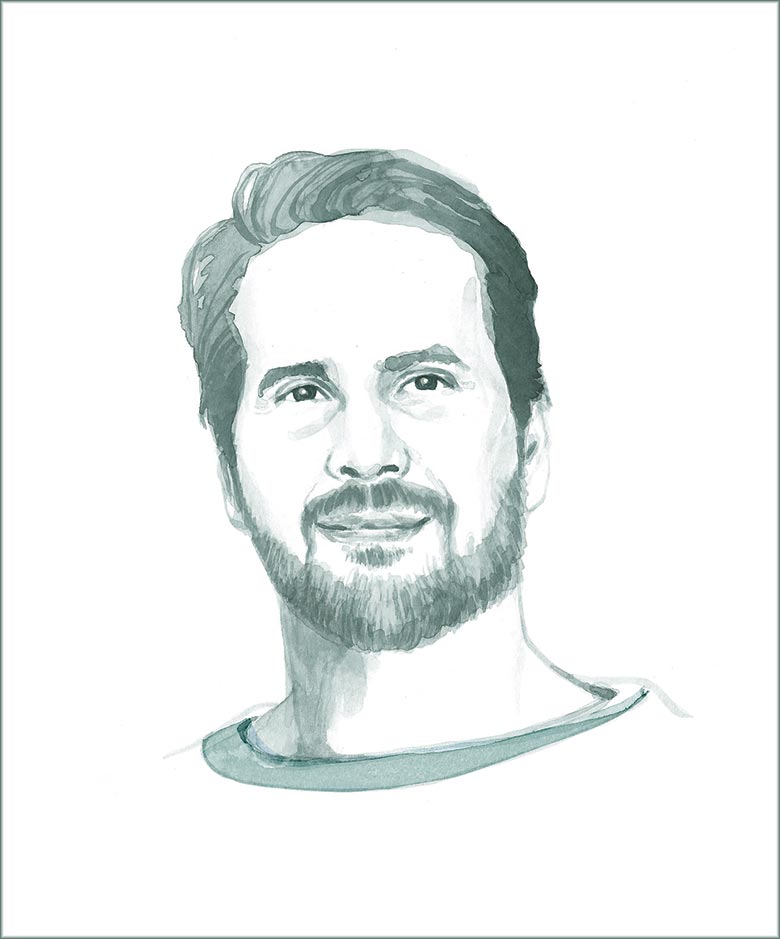YOUNG OPINION
“We have to start treating postdocs as the talented researchers they are”

Anthony Guihur is a postdoctoral researcher in molecular biology at the University of Lausanne and serves on the organising committee of the Association of Postdocs in Natural Sciences. | Illustration: Stefan Vecsey
Switzerland’s stunning natural beauty is matched by its thriving academic sector. But behind the glossy façade, postdocs – who form the backbone of academic research – are trapped in a never-ending cycle of temporary positions and uncertainty. This issue isn’t limited to Switzerland, but it’s worrisome in a country that prides itself on academic excellence.
To address the structural and systemic root causes of the problem, we need better-defined career paths, new financing models, and incentives for transferable skills. It is critical to involve all relevant stakeholders if we are to create sustainable solutions in which the contribution made by postdocs is to be valued properly. This will require a fundamental shift in thinking among academics and policymakers. Traditional solutions, such as job-sharing, are touted as palliatives, but are in fact just a sticking-plaster.
One solution to this problem could be to create more tenure-track faculty positions at professorial level or among mid-level staff (e.g., more positions for scientific associates and lecturers). Economic constraints could limit their availability, but they remain possible all the same. The University of Zurich’s recent decision to move in this direction is a promising step. Collaborating through joint ventures or public-private partnerships could also provide universities with funding for research and new positions without compromising academic freedom. They would also allow the private sector to benefit from the insights of academics. Transparency and clear guidelines are crucial to ensure control over the direction of research and over intellectual property.
Another potential solution would be to create tailored mentorship programmes, or to provide more chances for postdocs to gain transferable skills that are in high demand, e.g., entrepreneurial and project management skills. Setting up a task force or committee with representatives from academia (including underrepresented groups), industry, funding agencies and policymakers could help to ensure that all the relevant stakeholders engage in the decision-making process, and that solutions are sustainable and realistic.
In short, we have to start treating postdocs as the talented researchers they are, rather than as disposable commodities.




